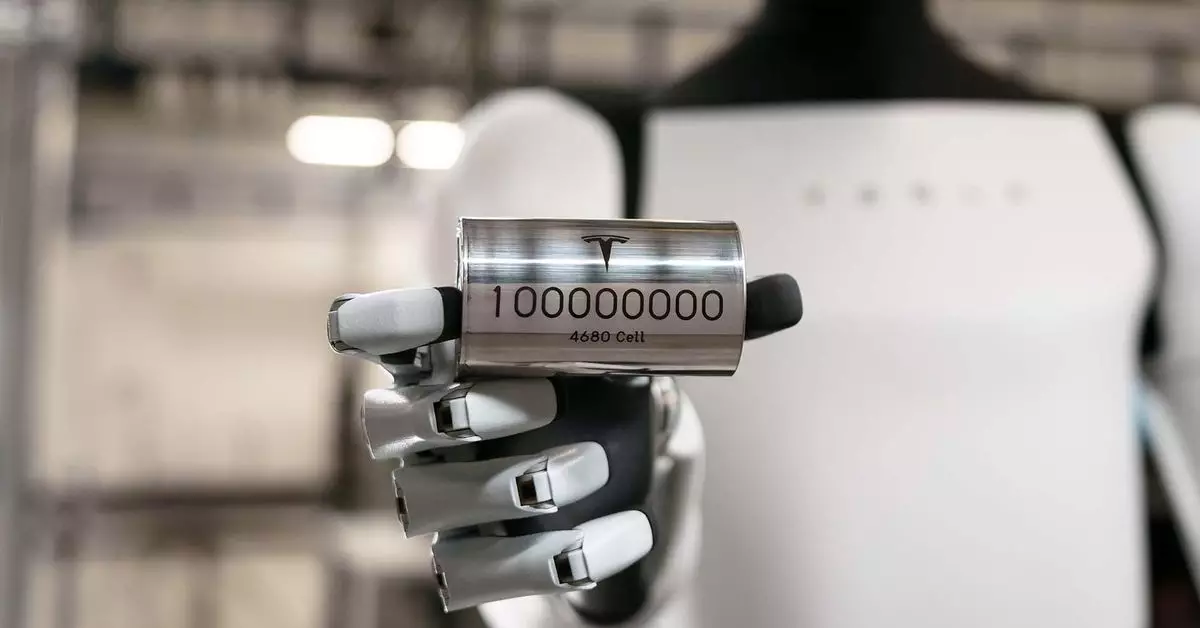The rapidly evolving electric vehicle (EV) sector is marked by a continuous quest for technological advancements. However, it faces skepticism from industry veterans, such as Robin Zeng, the founder of Contemporary Amperex Technology Co., Limited (CATL), the predominant global player in the EV battery market. Recently, Zeng shared his critical insights regarding Tesla’s innovative direction under CEO Elon Musk, casting a shadow on the company’s ambitious plans involving 4680 cylindrical cells.
Tesla’s 4680 cells, characterized by their unique “tabless” design, promise increased energy capacity—reportedly five times more than conventional alternatives. This technology plays a crucial role in Tesla’s portfolio, especially for vehicles like the long-anticipated Cybertruck. Nonetheless, Zeng’s analysis suggests a lack of confidence in Musk’s ability to execute these advancements. During a recent discourse with Musk, which Zeng described as a “big debate,” he perceived Musk’s silence as indicative of a deeper concern regarding his comprehension of battery technology.
Zeng’s critiques are not merely personal; they reflect broader industry challenges. Tesla’s deadline-driven approach to the 4680 technology—reinforced by a recently reported ultimatum from Musk to his team—raises vital questions about the sustainability of such innovation. Can a technologically ambitious project thrive under pressure, or does this lead to oversights that compromise quality and reliability?
While Tesla is busy refining its cell technology, CATL continues to dominate the battery scene with its lithium iron phosphate (LFP) batteries. Zeng readily points out that CATL’s batteries are utilized not just in Tesla vehicles produced in China but also in various Ford models, which showcases the company’s expansive reach. Notably, while LFP batteries typically offer lower energy density than Tesla’s cylindrical cells, Zeng believes they strike a crucial balance in cost and performance that is often overlooked.
This competitive situation presents an interesting dilemma for Tesla. While the brand aims to carve out its niche with cutting-edge technologies, the proven reliability and broader usage of CATL’s batteries in major global markets keep the latter firmly in the spotlight. Tesla’s aggressive innovation strategy must navigate not just technical obstacles but also the realities of market demand and battery chemistry.
Zeng’s critique extends beyond just battery technology; he also touches on Musk’s approach to timelines across various projects. The tendency to overpromise, particularly in areas like Full Self-Driving technology, may erode stakeholder trust. The disparity between expectation and reality in project delivery can have profound ramifications, especially in an industry that thrives on innovation and competitive advancement.
Elon Musk’s reputation for pushing technological boundaries is well established, yet Zeng’s observations remind the industry that ambition must be matched with realistic assessments of capabilities. The challenge lies in fostering innovation while ensuring that promises translate into tangible results.
The electric vehicle industry is witnessing a pivotal moment marked by contrasting approaches to battery technology and innovation. Robin Zeng’s candid remarks regarding Elon Musk’s vision reveal the complexities and challenges that accompany such ambitious endeavors. As we move forward, the ability to balance technological dreams with pragmatic execution will prove crucial for the success of companies like Tesla and the broader EV market.

